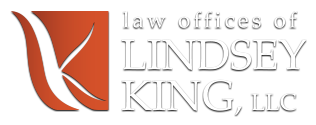March 31, 2020
This is the first in a series that attempts to break down the CARES Act, which was signed into law on Friday March 27, 2020. The CARES Act is being referred to as Phase 3 of the Federal Government’s response to the COVID-19 pandemic. Most relevant to small business owners, the CARES act provides an extensive expansion on unemployment benefits and eligibility, offers small business loans with forgiveness provisions, and provides tax credits to incentivize small businesses to keep employees on their payroll.
Today we’ll highlight the Small Business Loan Programs created by the CARES Act.
The two primary loan programs created by the CARES Act are the Paycheck Protection Program (PPP) and the Economic Injury Disaster Loan (EIDL). Both loans require the small business have less than 500 (as defined by the SBA) employees but have vastly different maximum loan amounts, eligibility requirements and repayment/forgiveness terms.
The PPP is aimed at providing funds to cover small business’ expenses as follows:
- payroll costs
- some employee benefits – such as sick, family or emergency (COVID-19 related) leave as well as health care benefits
- rent and/or mortgage interest
- utilities
If the business can maintain payroll during a defined 8 week period, they may be eligible for 100% of that loan to be forgiven – essentially converting it to a grant. Repayment terms otherwise may apply. The PPP also incentivizes qualified businesses to rehire employees they previously laid off or furloughed (reduced pay/hours) in the immediate response to the pandemic by creating a grace period to “rehire” those employees and include them in the forgiven part of the loan.
It appears that to be eligible for the PPP, a business does not need to be “open” (which is good news if you are a business who has been forced to close under the Safer at Home order), but simply needs to maintain payroll. The grace period for rehiring employees is somewhat narrow, so small businesses should look into this option sooner rather than later. The PPP also has a provision for sole proprietors to maintain their payroll- which would include payments for themselves.
The EIDL is a separate loan program and is not a forgivable loan (e.g. it must be repaid.) This loan was available prior to the CARES Act; the CARES Act has added a “quick relief” component, in which a maximum of $10,000 may be awarded in as soon as three days for coverage of some immediate expenses (payroll, mortgage, rent, and “other” expenses). The EIDL is applied for through the SBA directly and the “quick relief” is an option requested in the application. If the EIDL loan is not approved, the “quick relief” funds may be retained as a grant.
If a small business owner applies for both an EIDL and a PPP and is approved for both, the business owner most likely will only be able to retain one loan with the loan amount being reduced by any “quick relief” funds already received. More guidance on this topic is needed and will be shared as it becomes available.
The PPP is an expansion/modification of the SBA’s 7(a) loan portfolio. Information on the PPP can be found here but applications are done through an SBA lender. At this time, lending institutions do not yet have the applications for the PPP loan, but preparing to apply by gathering payroll and other business expenses is advised. Consulting with your financial and/or accounting team is encouraged
The EIDL program information can be found here and applications are done directly through the SBA website; the “quick relief” $10,000 component is elected in the application process. This link is helpful in providing you with an outline of what information you will need. It also provides information for sole-proprietor loans. Interested businesses are encouraged to apply as early as possible for these programs, and if you are fortunate enough to be approved for both, you should consult with your financial and/or accounting team to determine the best program for your business.
| IMPORTANT DISCLAIMERS: 1. The information above does not constitute legal advice, nor does it create an attorney-client relationship. Please consult your attorney with specific questions. 2. As this situation is constantly changing, we will make every effort to stay current on this topic, however this information is provided as general guidance and may not apply to your situation, nor should it be relied upon exclusively. Please consult and confirm with your attorney if you have questions about these updates or their applicability. 3. In some jurisdictions this communication/website might constitute legal advertising. The choice to hire an attorney who is right for your business should not be made based solely upon advertisements. If you would like to learn more about our firm, please click here to learn about our firm and how to contact us. Copyright 2020 *Law Offices of Lindsey King*, All rights reserved.* |
